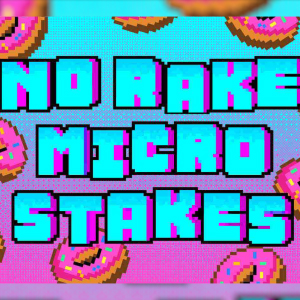Will PokerStars Look to Acquire Partypoker?
10 years ago
08 Sep
When GVC finally bought over Bwin.party last week after a summer-long bidding war with rivals 888, it raised as many questions for the poker industry as it answered.
- Why did Amaya, who own PokerStars and were initially part of a joint bid alongside GVC, not feature in the final ticket which Bwin’s shareholders finally accepted.
- What exactly are GVC’s plans for the poker arms of Bwin?
- Where do Amaya/PokerStars figure in future plans?
Which move will come next as the big boys of the gambling and entertainment industry consolidate their operations and, most importantly from our perspective, how will it benefit poker?
The Backdrop
Back in May, when the initial joint bid by GVC and Amaya was launched to challenge 888’s offer for Bwin, it was reported that
“Amaya, the owner of Pokerstars and Full Tilt Poker, is understood to be interested in the online gambling business' poker assets and possibly its sports-book”.
All well and good on the outside, with “plans being drawn up by the two companies” whereby “Amaya would have the option to subsequently purchase the poker operations”.
But it didn’t happen this way at all.
In July, 888 holdings acquired share-holder backing from Bwin.party and its bid seemed destined for success. GVC and Amaya’s joint proposal “was considered more complicated and therefore higher risk than the simpler offer tabled by 888”.
Although not specifically mentioned, this may have been in part because of concerns over an ongoing insider-trading investigation at Amaya.
The giant Canadian gaming company Amaya had bought over PokerStars and Full Tilt Poker in August last year for $4.9bn but by December, offices were being raided by Quebec’s financial market’s regulatory body. In conjunction with the Royal Canadian Mounted Police (RCMP), they were looking to
“find evidence of insider trading shenanigans related to Amaya’s purchase of PokerStars parent group Oldford”.
Serious stuff, and it’s not difficult to imagine Bwin.party’s share-holders preferring to avoid any potential fall-out and opting for 888 instead.
However, when GVC dropped Amaya from their bid and upped the stakes with a massive shares-and-cash offer, the Bwin directors and share-holders seemed not only pacified over these other concerns, but positively enthusiastic at the idea of GVC winning out. And indeed this is what happened.
The Current status
OK, so enough of the history lesson. GVC, not Amaya, have acquired Bwin.party. What will they do with the poker arm?
Selling it on would be the obvious choice.
GVC’s fight for Bwin was part of a broader consolidation in the European gambling sector, but it seems unlikely that they will do more than try to stabilize the Bwin poker offerings by combining it with their Partypoker platform before looking to offload it.
In their buy-out proposal, GVC concurred that
“poker is Bwin.party’s least profitable (by contribution) gaming business and has declined in terms of net gaming revenue and contribution in recent years.”
It makes sense that GVC concentrate their efforts on the sports-betting side of Bwin’s operations – an area which GVC specialize in and which Bwin can contribute to with their brand and technology. Poker is not the main focus, never has been, and seems unlikely to become so.
Enter Amaya and PokerStars
Who do we know that was interested in the poker side of Bwin’s operations, and who also have the expertise and infrastructure to turn around the poorly-performing arm? That’s right –Amaya and their massively popular industry-leading PokerStars.
When Amaya bought out PokerStars, and their beleaguered rival Full Tilt Poker, it was seen as “a positive development for poker enthusiasts…the potential return of the PokerStars brand will grow our game” in the words of John Pappas, executive director of the PPA.
Amaya themselves said, “Amaya believes the transaction will expedite the entry of PokerStars and Full Tilt Poker into regulated markets in which Amaya already holds a footprint, particularly the U.S.” and this is obviously an area which PartyPoker and its recent Bwin acquisition would benefit from greatly as well.
Good for poker or a scary prospect?
For a number of reasons there are many more poker companies leaving the arena than there are entering.
The decline in online players, and therefore returns, are making entry to the market a less than profitable exercise. Focusing on more profitable arms of the gambling and entertainment industry are simply more attractive at the present time.
Secondly, with so many countries and jurisdictions enacting tighter regulations, new and existing poker companies are having to struggle so much harder to gain or increase a foothold. With gambling laws changing by the month, even within a single country’s border as with the USA, investment and growth is being stunted by indecision.
A monopoly is emerging which simply cannot be a positive thing for the game. Competition is always one of, if not THE main driver of profits and success, and an increased domination by PokerStars makes such a positive scenario for the game less likely in the long-term.
This wasn’t such a problem when GVC announced their revised sole, ultimately winning, bid for Bwin.
"There aren't any particular competition issues because in no one country will either of the acquisitions cause a monopoly situation”
Final question...
Given that the above scenario does actually come to be, can PokerStars actually help to grow Partypoker?
The decline in traffic at Full Tilt Poker since being taken over would suggest not, or perhaps barely. Adding a struggling brand together with the falling base of Bwin’s poker interests doesn’t suggest enough of a plus to indicate otherwise.
So what were Amaya and PokerStars plans for the future in their initial failed bid? To run multiple brands across various interests? Or simply a future vision of removing a competitor from the market-place when GVC’s plans to pass on poker came to fruition?
There is a definite logic to PokerStars eyeing up a removal of the competition by buying out GVC’s poker interests; a majority of Partypoker (and as of last week, Bwin also) users are already in the PS databases through Full Tilt or Pokerstars itself. Consolidate the player base, remove the extraneous platform, repeat and monopolize.
GVC have little interest in this, PokerStars obviously do – so the clever money should be looking at a not-too-far-in-the-future deal between the giants of poker and the giants of sports betting.






Comments
You need to be logged in to post a new comment